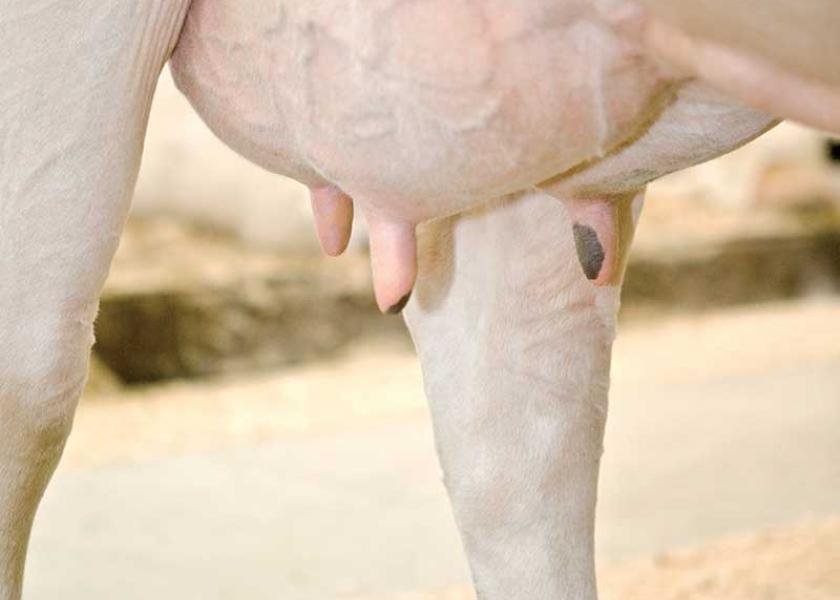Top Tips for Winter Teat Health

Winters are hard on teat conditioning. Cold and dry or mild, wet, windy and muddy winters lead to chapped teats and dry skin creating teats that are more difficult to clean, painful and an ideal environment for bacteria—increasing the risk of mastitis. Take time before winter ends to re-evaluate your dip program, improve teat condition and prepare for the next mastitis challenge. Here are a few tips to help you ReCharge Your Udder Health:
1. Evaluate teat condition. Evaluate at least 20% of your herd’s teat skin and teat-end condition after being prepped for milking. If you have cows in different housing environments, such on open lots and in a freestall or freestall and bedded pack, evaluate each of those separately. Do you see dry skin, small cracks or cuts in the skin, open lesions, red spots or areas of inflammation or hyperkeratosis? If you answered “yes” at all, you need to recharge your teat dip program.
2. Improve your cleaning power. Speed of kill, broad-spectrum killing capacity and cleaning properties are key features that should be present in all pre-dips (Lopez-Benavides, NMC 2013). Choose a product with a high non-NPE (Nonylphenol ethoxylates) surfactant package, but do not sacrifice dip efficacy for cleaning properties. Generally, non-iodine pre-dips have better cleaning properties, and many have a Log 5 Kill Power in less than 30 seconds or greater.
3. Consider NPE-free teat dips. Nonylphenol ethoxylates (NPE) are strong surfactants used for many decades in iodine dips as complexing agents. While strong surfactant properties help to remove soil, which is important in the milking routine, it can also have a drying effect on skin. Significant improvements in teat health were reported by replacing NPE dip products with non-NPE dip products (Sima NMC 2019). Cows in the NPE-free group were 3.4 times more likely to have better teat skin and 1.2 times more likely to have improved teat end roughness than the NPE group.
4. Exfoliate and heal with post-dip. Post-dips have roles other than controlling contagious mastitis: exfoliation of dead skin and conditioning properties to maintain soft and supple teat skin.
- Many post-dips have active ingredients designed to expedite exfoliation. These dips improve teat skin and teat end condition in a very short time frame, but be prepared for the visual of the exfoliation process.
- Emollients and conditioners heal teat skin. You will need a higher emollient dip package to improve teat condition. Cosmetic-grade glycerin is the gold standard for post-dip emollients. However, dips with sorbitol or propylene glycol will also yield results. In general, higher emollient dips will speed healing. If you are spraying post-dip manually or through robotic systems, check with your manufacturer to determine if the higher emollient dip can be sprayed through your system. Sprayability is impacted by product viscosity, surface tension, spray nozzle design and angle, distance and flow rate. If teat condition is suffering, manually post-dipping for a few weeks with a high emollient product may be necessary to speed improvements in teat conditioning.







